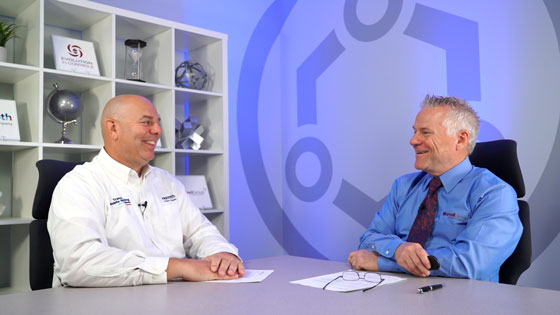Control technology is the core of mobile and off-highway equipment. Many off-highway systems are exposed to hazards like weather or uneven terrain. Additionally, some mobile and off-highway equipment can harm workers if operated incorrectly. Control technology has become remote to prevent worker injury, meaning workers can use these machines from a safer distance. One remote control technology solution is the CAN Bus system by LOR Mobile Controls. In this episode of Evolution in Controls, Fritz Jaessing, the account manager at LOR Mobile Controls, joins Tim to discuss this new control technology and its role in electric engines.
Controller Network Area (CAN) Bus
The CAN Bus system is a remote control replacement for discrete wiring in electric engines. With discrete wiring, a wire must be connected to every node on components in an engine. However, CAN Bus only needs four wires to receive all the same information and more. Reducing the number of wires makes mobile and off-highway equipment and their surrounding areas safer for workers. Additionally, there's less finagling with wires when an issue occurs.
LOR Mobile Controls recommends CAN Bus when customers search for a wiring system for electric engines. If customers already have CAN Bus control technology, LOR Mobile Controls can create different mappings for the customers' systems. The CAN Bus system boasts many benefits to which discrete wiring can't match up.
CAN Bus Benefits
CAN Bus comes equipped with diagnostic software. With CAN Bus, workers don't have to examine and search for the problem on the mobile and off-highway equipment themselves. Instead, workers can access all diagnostics info right from the CAN Bus system. Though this diagnostics method may be more straightforward, it still requires diagnostics knowledge. Fritz explains that different knowledge is needed for CAN Bus diagnostics since it's a newer control technology. Further, CAN Bus provides instant info on systems like RPM or fuel usage. The info needed appears right on a screen.
Diagnostics isn't the only benefit - CAN Bus is a very flexible control technology. For example, LOR Mobile Controls offers three styles of radio remotes: single handheld, two handheld, and a large belly box. Any one of these radio remote controls can use CAN Bus control technology. This means that workers don't need to rearrange wires to another control unit. Discrete wiring is strictly limited when transferring control from one control method to another - everything must be hard-wired. That's not the case with CAN Bus because its wires stay in one place even when using a different control unit.
The CAN Bus system is the future of remote control technology for mobile and off-highway equipment with electric engines. Because the electrification of systems is becoming more widespread than ever, it's essential that control technology evolves along with it.
Want more episodes about mobile and off-highway equipment? Click here!
Watch another episode
Application Approvals help OEMs reduce Machine Downtime
Validating and approving applications can provide a solution to the problem OEMs and suppliers face with the introduction of new technology. Tim sits down with Terry Hershberger of Bosch Rexroth to discuss.






